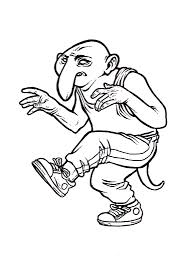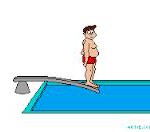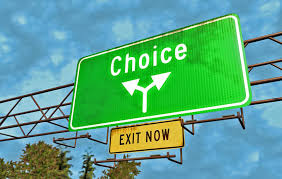Finally got a wi-fi connection. Better get this posted quickly before I lose it!
Written yesterday evening: I’m pretty tired so I’ll try to make this brief. Today was day 1 of the conference. This morning there were various introductory remarks. Then, just after a vegetarian lunch, I was to be the first speaker. I was to be in the “hot seat,” next to him, for two hours — 1.00 to 3.00 PM — powerpoint presentation on the screen, words stuck in my throat, talking to him. Not to the audience but to him. Gaaaaggghhhhhhh!!!!!
Yes, I was a bit nervous. I had sat in that room for three hours already, with 2-300 other people in seats arranged around our inner sanctum of easy chairs, with his chair (and the hot seat, the one next to it) at the front. About 60 Westerners (some very famous) from the Mind & Life Institute plus donors — the folks who made it all happen. Plus a hundred or so Buddhist monks, plus various people from all over the world who’d managed to get invited for various reasons.
The security was tight. Every person who crossed from “the temple” to “the residence” had to show a passport, a visa, fill out a detailed form, have everything in our pockets checked, and then undergo a full body search. Once you got to the other side, you knew you were some place unique, reserved, protected.
(And by the way, these folks have good reason to be vigilant. The Chinese have not been very friendly toward the Dalai Lama. They seem to hate him, and that plus any whacko who’d like to get famous shooting a good guy…well, that’s why they’re careful.)
But once you enter the conference room, you are in another world. The main thing is the energy. Before His Holiness (HH) arrived, the air was thick with anticipation, hope, affection, excitement, admiration. The Dalai Lama, whatever you might think of him, has a lot of people who love him. He IS special. And when he came out and greeted everyone — and I mean everyone — with waves and nods and hand holding — you got a sense of what was so special about him. He was cheerful, penetrating, personal, warm, sincere, exuding both gravity and humour — if you can imagine all that in one man.
My talk was pretty much what you’ve already heard on this blog. Insert: my talk posted here. Thank you, Shaun! In a nutshell, I did good. I got a lot of hugs and handshakes and big thank-yous from the team and audience members afterword. And a few riveting looks, wry smiles, and some friendly pats from him during the process.
Written this evening: There is a live webcast of the remaining days of the conference, and then the whole thing will be archived on the Mind & Life website, viewable, soon. Sorry, but  the wi-fi connection here has been extremely intermittent. Anyway, there are three more days of talks about “desire, craving, and addiction” and I especially urge you to tune into Kent Berridge’s talk. Kent spoke this morning — Day 2 — and I just had dinner with him in some funky Tibetan cafe — lovely guy. I know, he looks about 14 years old. But he’s got an amazing head on his shoulders. INSERT: Here is the link to Kent’s talk. All other sessions can be accessed by going to YouTube and searching for “mind life craving desire addiction”. The full program can be accessed at http://www.mindandlife.org/dialogues/upcoming-conferences/ml27/ The PDF is towards the bottom of the page, and also creates summaries of the various presentations. (Thanks, Shaun, for this information.)
the wi-fi connection here has been extremely intermittent. Anyway, there are three more days of talks about “desire, craving, and addiction” and I especially urge you to tune into Kent Berridge’s talk. Kent spoke this morning — Day 2 — and I just had dinner with him in some funky Tibetan cafe — lovely guy. I know, he looks about 14 years old. But he’s got an amazing head on his shoulders. INSERT: Here is the link to Kent’s talk. All other sessions can be accessed by going to YouTube and searching for “mind life craving desire addiction”. The full program can be accessed at http://www.mindandlife.org/dialogues/upcoming-conferences/ml27/ The PDF is towards the bottom of the page, and also creates summaries of the various presentations. (Thanks, Shaun, for this information.)
 Feeling happy here today, a bit star-struck but holding my own. Nora Volkow just arrived this afternoon. So she’s missed Kent’s talk and mine, which is unfortunate. But it was cool sitting next to her and passing the mike back and forth during the discussion periods. She seemed just like the firebrand I’d expected. A small, lithe woman with a LOT of self-confidence. A great scientist, no doubt, but also someone with strong opinions and no hesitation in expressing them and backing them up with the latest data. She still sees addiction as “hijacking the brain.” So her basic stance has not changed over the years. I’ll hear her talk tomorrow morning, and you can easily catch it live-streamed at the above links.
Feeling happy here today, a bit star-struck but holding my own. Nora Volkow just arrived this afternoon. So she’s missed Kent’s talk and mine, which is unfortunate. But it was cool sitting next to her and passing the mike back and forth during the discussion periods. She seemed just like the firebrand I’d expected. A small, lithe woman with a LOT of self-confidence. A great scientist, no doubt, but also someone with strong opinions and no hesitation in expressing them and backing them up with the latest data. She still sees addiction as “hijacking the brain.” So her basic stance has not changed over the years. I’ll hear her talk tomorrow morning, and you can easily catch it live-streamed at the above links.
 And then there’s Richie Davidson, smiling and schmoozing, moderating and guiding things, being knowledgeable but at the same time rather sweet. And a few other people I’d never heard of before the meeting in June — people I’m really growing fond of.
And then there’s Richie Davidson, smiling and schmoozing, moderating and guiding things, being knowledgeable but at the same time rather sweet. And a few other people I’d never heard of before the meeting in June — people I’m really growing fond of.
I’ll tell you more about the viewpoints expressed and debated among Buddhists and Westerners next post. And by the way, I talked about you, my “blog community” quite a bit yesterday. You’re my data base now, my compass — not to mention where I send my letters from overnight camp.













